Tomato Battle or La Tomatina Festival
Categories: Europe | Holidays and Festivals
By Pictolic https://pictolic.com/article/tomato-battle-or-la-tomatina-festival.htmlIn the last week of August, the annual Tomato Festival begins in the town of Buñol in eastern Spain. The highlight of the celebration is the tomato battle La Tomatina! This famous festival, also known as the Battle of the Tomatoes, attracts thousands of participants from all over the world, ready to plunge into a sea of ripe tomatoes. The streets of the Spanish town of Buñol become a battlefield, where the main weapons are tomatoes. Find out more about the origins and rules of this colorful and cheerful tradition, which has long been a symbol of joy and unity.
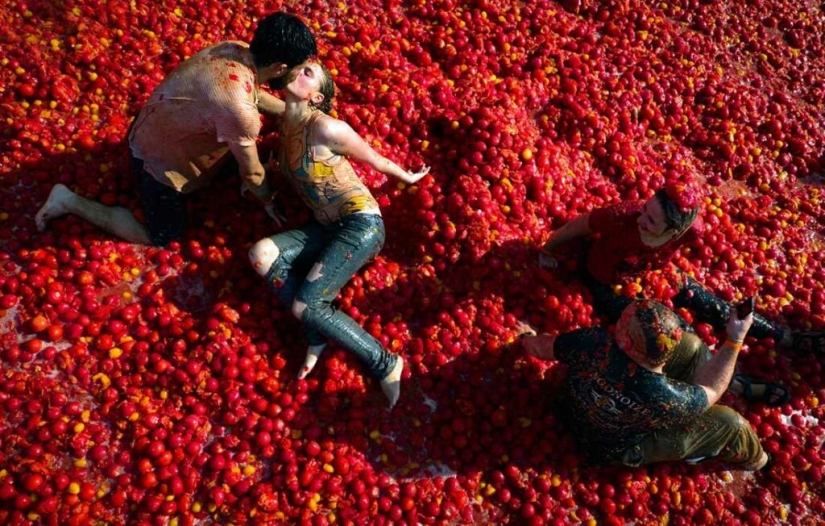
Every year, the small Spanish town of Buñol hosts an event that turns its streets into a real river of red tomato juice. This festival is known as La Tomatina, and it attracts thousands of people from all over the world. If you are looking for bright emotions, a sea of fun and a real adrenaline rush, then La Tomatina is exactly what you need.
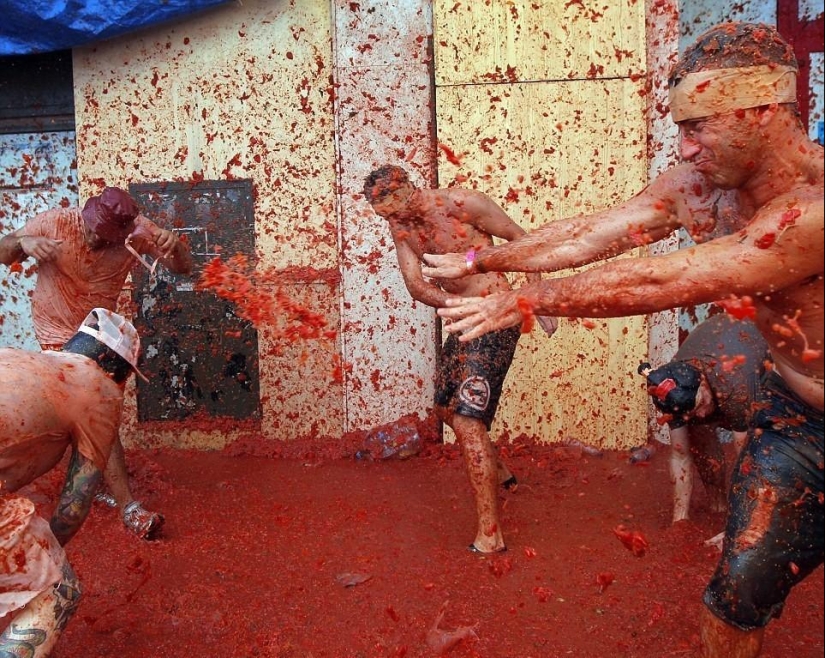
The history of this unusual festival goes back to the mid-20th century. The very first tomato massacre took place in 1945, when a group of young people got into a fight at the end of summer festival in Buñol. The skirmish turned into a mass brawl using tomatoes that were at hand at nearby vegetable stands. Since then, tomatoes have become the main attribute of this festival.
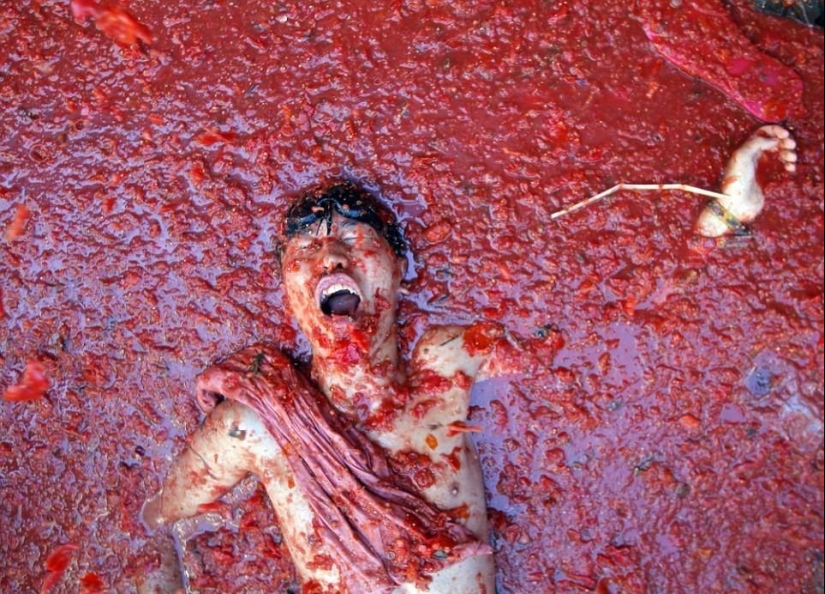
During the reign of dictator Franco, the festival was banned because it had no religious significance. Despite this, La Tomatina was revived in the 1970s and has since become an important part of Buñol's cultural heritage.
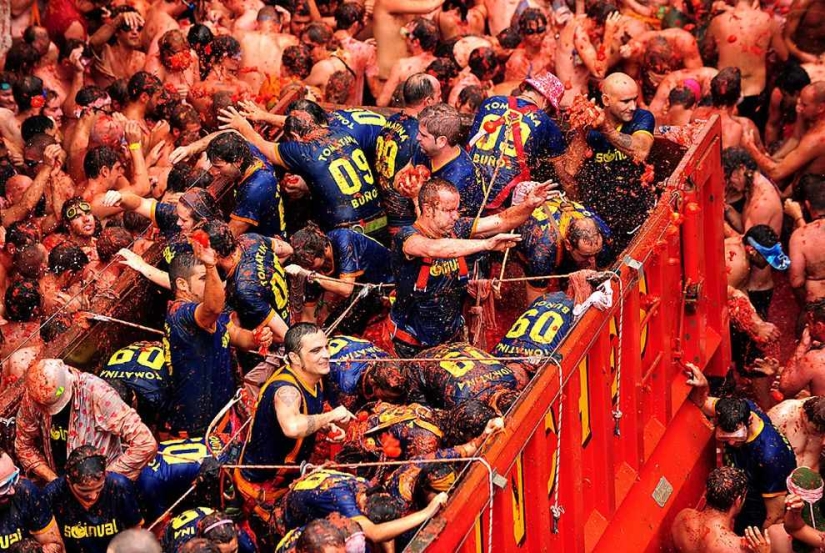
In recent years, the Tomatina festival has attracted more than 20,000 participants from all over the world. The celebration begins in the last week of August, when the streets of Buñol fill with music, dancing, fireworks and free food. The festival culminates in a tomato fight in the town square.
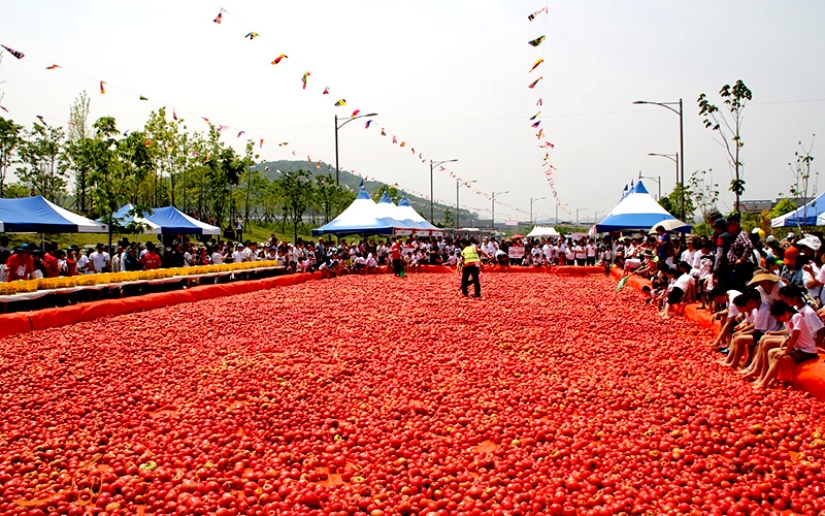
The signal for the battle to begin is the launch of a firecracker from the city hall at exactly 11 a.m. After this, several trucks loaded with hundreds of tons of ripe tomatoes drive out onto the city streets. The participants of the festival rush to the trucks to stock up on “ammunition,” and a real tomato war begins. Anyone who is within range becomes a target for the tomatoes, and for two hours the city is plunged into chaos and joy.

In order for the Tomatina to be held safely and in an organized manner, simple but important rules were introduced. Firstly, the beginning and end of the battle are determined strictly by the signal of the firecracker. Secondly, participants can only throw tomatoes, and before that they must be crushed to avoid injuries. It is forbidden to tear the clothes of other participants and interfere with the movement of trucks with tomatoes. Thanks to these rules, every year the festival takes place without serious incidents.
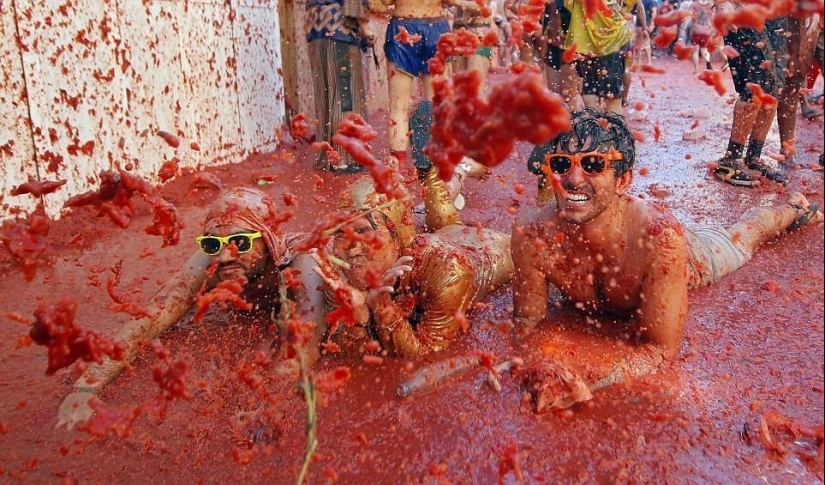
Until 1975, every resident of Buñol brought their own tomatoes to the festival, paying for them out of their own pocket. But as the festival grew in popularity and the number of participants increased, the city municipality took over the organization of the Tomato Battle. Since then, local authorities have provided the festival with the necessary "ammunition", purchasing hundreds of tons of ripe tomatoes.

La Tomatina is not just a celebration, it is a real show, full of bright emotions, laughter and a unique atmosphere. The festival ends with a swim in a pool filled with tomato juice and a drawing of traditional Iberian pig hams. When the battle is over, the city square is washed and life in Buñol returns to normal, but the Tomato Festival, which has become the calling card of this Spanish city, continues for several more days.
Recent articles

It's high time to admit that this whole hipster idea has gone too far. The concept has become so popular that even restaurants have ...

There is a perception that people only use 10% of their brain potential. But the heroes of our review, apparently, found a way to ...

New Year's is a time to surprise and delight loved ones not only with gifts but also with a unique presentation of the holiday ...